This content was originally published by the Longmont Observer and is licensed under a Creative Commons license.
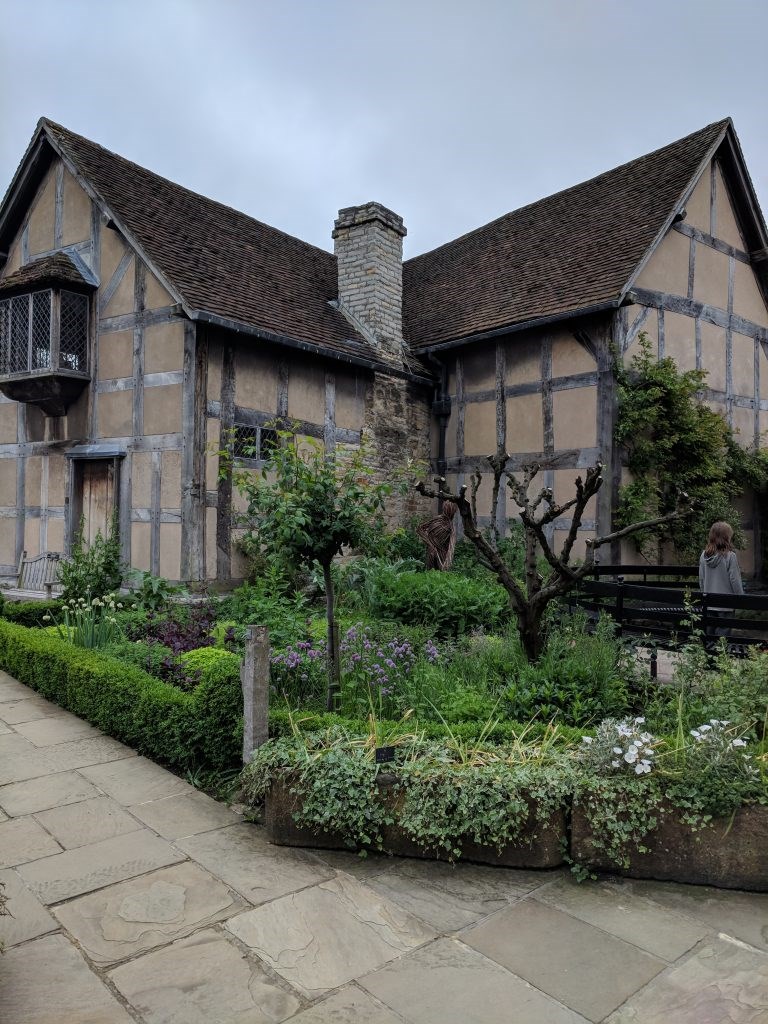
Growing up, I always thought the plays of William Shakespeare were too fancy to understand, but the truth is they were written by a common man in a different time. The subjects and stories in Shakespeare’s plays are timeless and, in fact, have been the fodder of hundreds of tales told today, set in different times and places, with different characters, and in different languages.
Shakespeare told stories of love, of misunderstanding, of unequal treatment, of failed dreams and hilarious adventures, and his stories always had some kind of lesson (or several) for his audiences to walk away with. He was a man of the common folk, and his plays were written in the language of the common folk of his time.
One of my dreams when I visited England was to see a Shakespeare play performed in the Globe Theatre. I was able to more than fulfill that dream when I toured his place of upbringing AND witnessed “As You Like It” in the Globe.
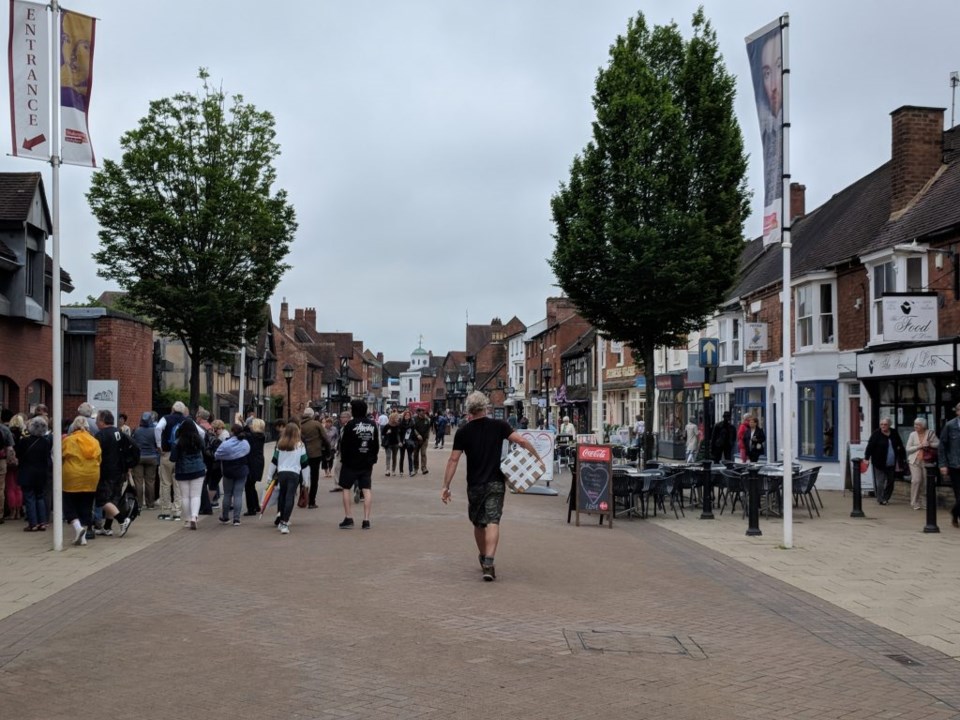
William Shakespeare grew up in a town called Stratford Upon Avon (pronounced Aven), which is well preserved little town just a little over a hundred peaceful country miles northwest of London. Shakespeare was a son of a wealthy glover, or leather worker, who had become mayor by the time William was 4 years old. Besides dealing in leather, a horribly stinky profession because of the ingredients used for tanning, William’s father was also an illegal wool trader.
There is still a controversy over whether Shakespeare and his family were also “secret Catholics”, which would have been forbidden during Queen Elizabeth’s reign after the reformation. Elizabeth’s Father, Henry VIII, had taken over control of the church after being ousted from it for divorcing his wife and marrying Anne Boleyn.
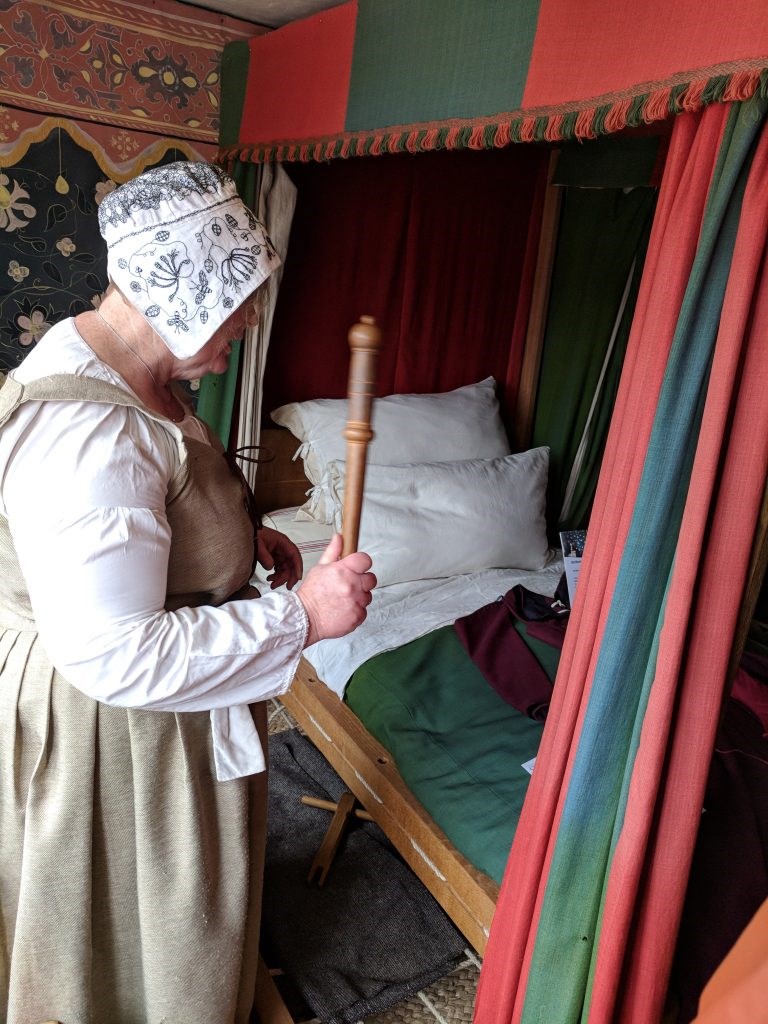
Many of William’s 37 plays contain references to the things he must have witnessed as a child, including business dealings (legal and otherwise), town meetings, trials, altercations, and visiting foreigners. They also contain references to things he was taught as a child, including the stories of the fairies who were likely to visit the children at night during their dreams, and the bad dreams that came carried by a female horse, the night mare. His childhood home, school, and many of the city buildings he and his father frequented are still standing and can be toured almost daily.
The King Edward VI school, where Shakespeare attended 5 1/2 days a week, 44 weeks per year, from 6 a.m. to 4 p.m. (with a half-day break on Thursdays), is still in operation today, in a building just across the yard from the original. Since it was against the law not to attend the Protestant church in town, the children were tested on the sermon every Monday. They also learned English, Greek, Latin, mathematics, history, and practiced daily on the longbow, which required 90 pounds of pull and is credited with a few victories over the French during the Hundred Years War. As a modern-day teacher, I was fascinated learning about the conditions and expectations of schooling so many years ago.
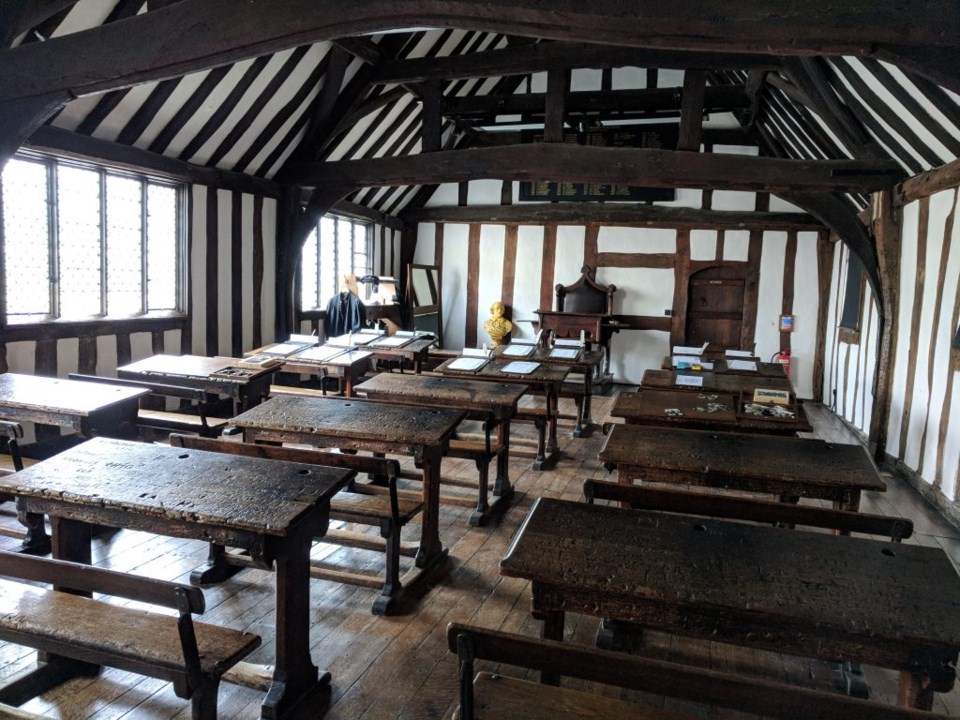
Once Shakespeare was grown, he purchased a home of his own and turned his family home into an inn. Why he didn’t give his family home to his sister who was living with her husband and six children in a tiny house next door, we’ll never know. He later died there after an episode where, according to the vicar of the nearby Holy Trinity Church, he and his friends Drayton and Ben “had a merry meeting and it seems they drank a bit too hard…” We will never get an opportunity to visit Shakespeare's “grown-up” home, since it was later owned by the church and then burned down in the 1700’s to prevent the many tourists from peering in the windows. Tourists? In the 1700’s? No, this isn’t a typo.
By the time William died at 52 in the year 1616, he had written over a million words, many in the form of plays he and his friends performed for the people, and others in the form of sonnets (written while all the theatres were closed down by the church). His works were published by his friends after his death.
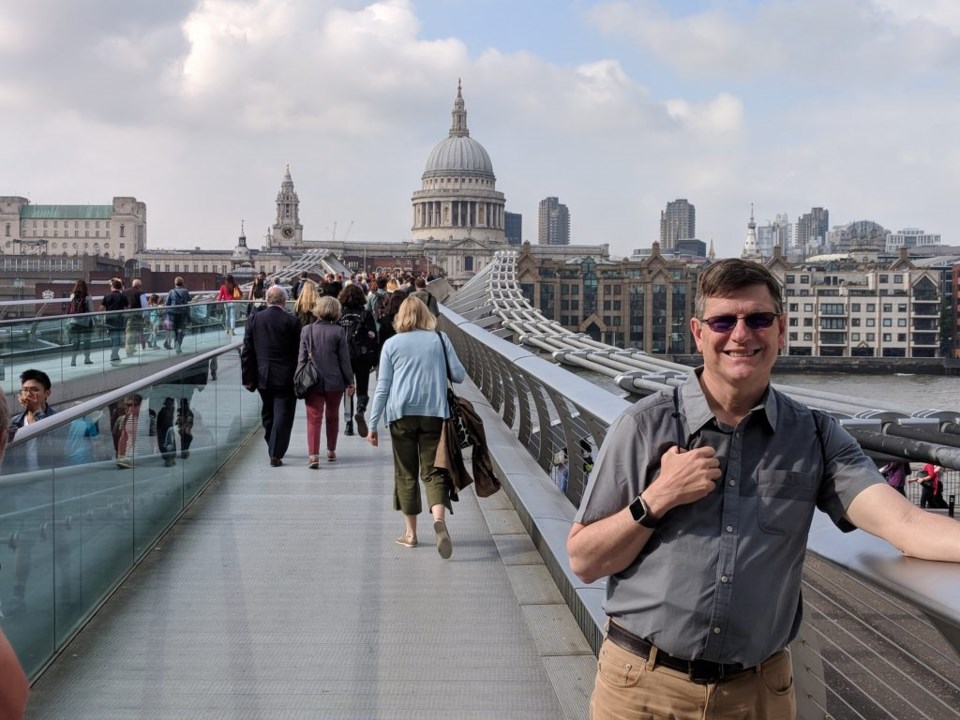
Soon after we completed our day long tour of Stratford Upon Avon, we were back in London, walking the busy streets of this modern, hurried city. We navigated past cathedrals and across bridges in the shadow of skyscrapers, and narrowly escaped death by looking in the wrong direction for oncoming traffic. Suddenly, my husband Bill stopped and gazed upward. “Huh, look at that big old building.” I followed his gaze and realized we had stumbled across what I had always dreamed of seeing: The Globe Theatre. In the middle of today’s London, we were transported back in time to the 16th century.
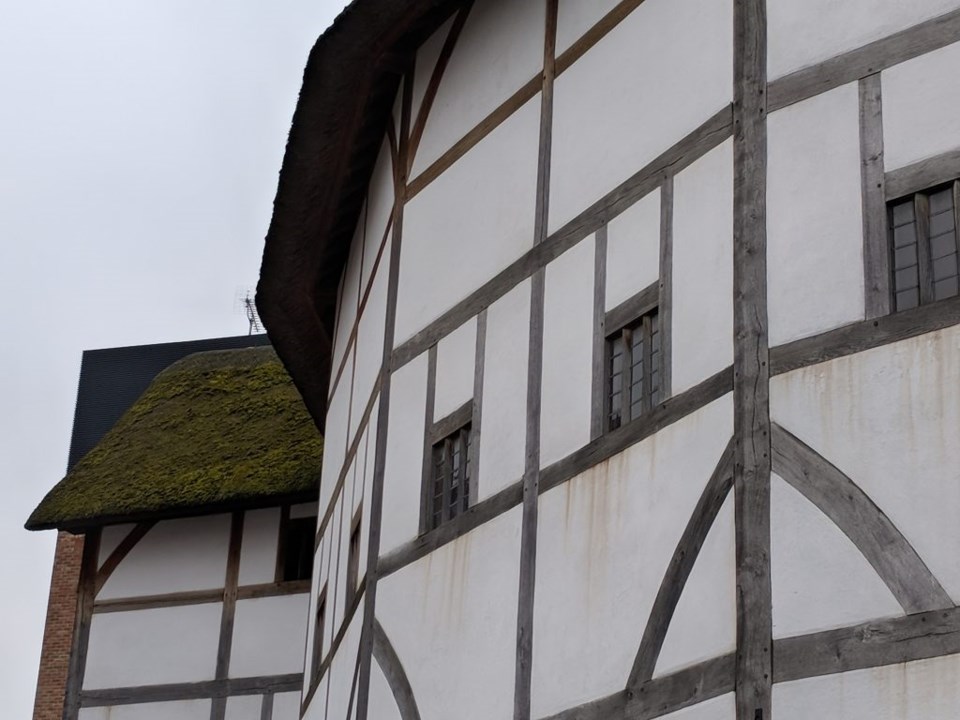
We began by touring the ancient building and grounds. It was just the way I had pictured it: a round auditorium, open in the center to allow the sun to light the stage. There were balconies for the nobility, but the richest of them could afford box seats attached to the stage itself. I wondered why they would want to watch a play from behind the performers, but the reason was explained to us easily. It wasn’t about them seeing the play. It was about making sure the audience could see them. Some things haven’t changed.
The bottom floor was the standing area for the commoners. The players called this part of the audience the stinkards because they were laborers, often still smelling like the animals they cared for or the products they crafted. This, added to the sun-baked auditorium and that they were required to stand during the entire three-hour performance, made for quite the fragrant conditions, to say the least.
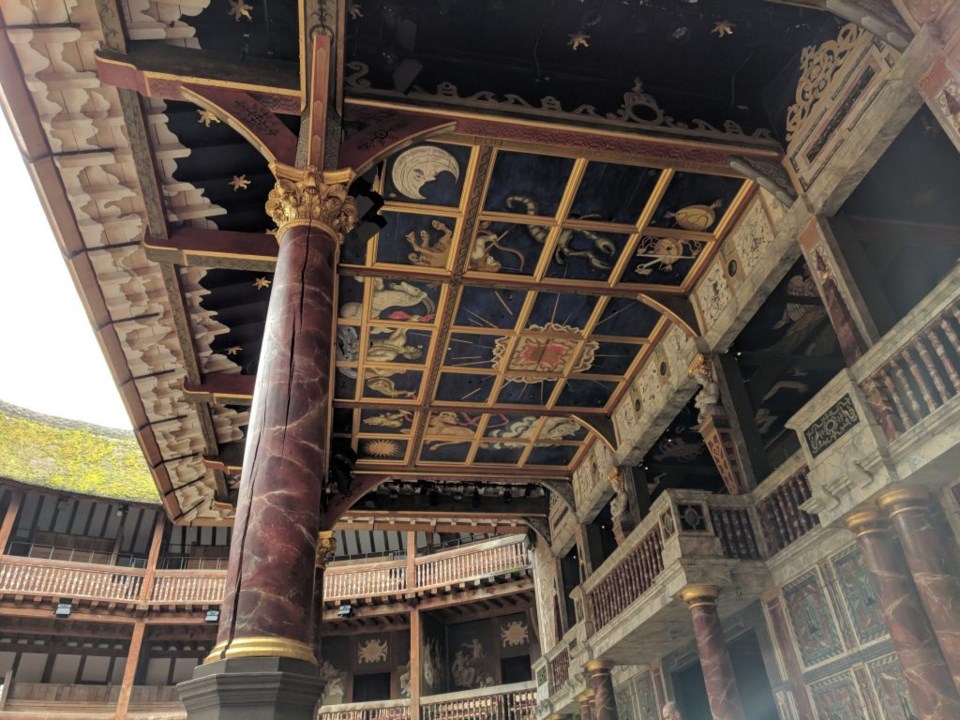
Upon looking up at the only part of the stage with protected from the weather, I understood a quote from the play we were about to watch: “All the world’s a stage, and all the men and women merely players.” We wondered if the actors in Shakespeare's had felt that way whenever they looked skyward, for the ceiling above them was gloriously painted with the sun, the moon, and the stars, as if they were performing for the universe itself. They probably never realized that the small parts they were playing were making such a big mark on their world, even hundreds of years later.
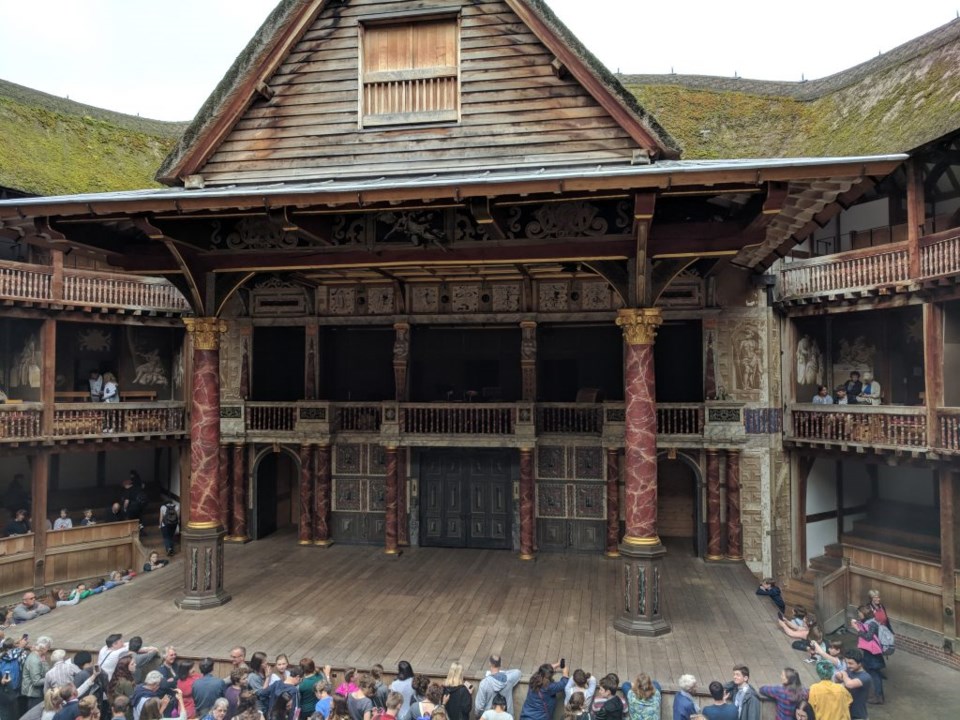
Soon, it was time to watch the performance. Thankfully, we had chosen to behave as nobles and got a ticket sitting on a bench, with a cushion, in a shaded balcony directly across from the stage. As the “stinkards” filed in, it surprised me how many of them had chosen this route. Some may have done so for economy, but I couldn’t help thinking that many of them must have wanted to experience the play as the commoners would have 400 years ago. Their ticket price was a great deal; however, they did pay 500 times more than the penny the stinkards paid so long ago.
The performance was superb; it was unlike any Shakespeare performance I have ever attended. Like in Shakespeare’s day, there was a man playing a woman pretending to be a man in order to get close to the man she had fallen in love with. Confusing, right? But women weren’t allowed to perform on stage during Shakespeare’s time, so they had to make do. Unlike Shakespeare’s day, the man she fell in love with was actually played by a woman! In addition, a woman played the duke who banishes her father, and the same woman played the father himself! There were more twists and turns in the play than in the route we had taken to get to the theatre, but the story unfolded so visually and brilliantly that it completely wrapped the audience within itself. The costumes were amazing, especially the one that unwound from a dress to fill the entire stage. And even my husband, not a Shakespeare fan, got into it. Amusingly, his favorite character was played by a deaf girl because, quoth he, “at least I could understand what she was saying.” Wait… what?? Trust me. You had to be there.
We left London reveling in the fact that we had just walked the streets where the timeless bard had walked, weaving fascinating tales, captivating audiences, and still living on in history. Travel does that to a person.

.jpg;w=120;h=80;mode=crop)
